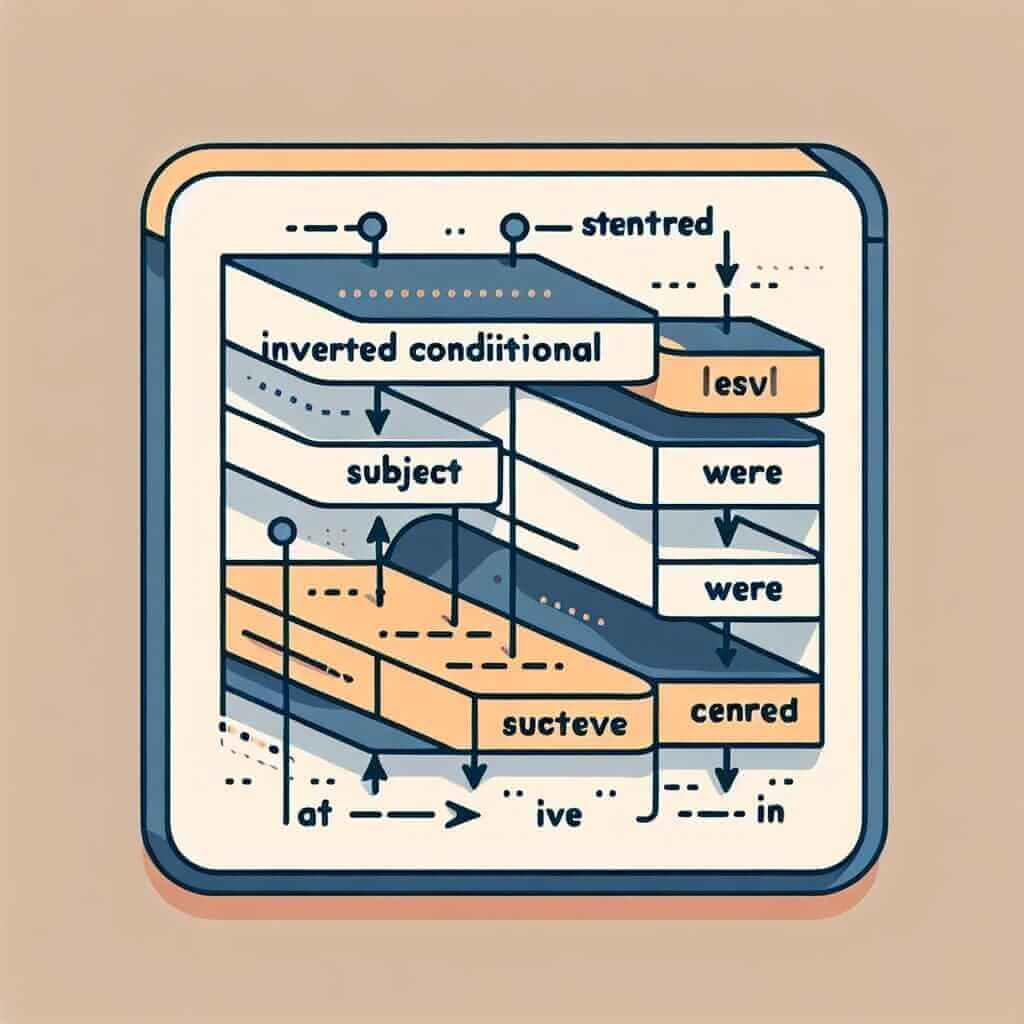“Were it allowed, I would make an exception” – this phrase might sound a little unusual, right? This is because it utilizes a grammatical structure known as the inverted conditional, a favorite tool for adding a touch of formality and sophistication to your writing, especially in the IELTS exam.
This structure often appears in IELTS Writing Task 2, where you might need to express an opinion or present an argument in a formal and persuasive manner. For example:
-
“Were online education more accessible, educational inequalities could be significantly reduced.” (Expressing an opinion on the impact of online education)
-
“Were stricter regulations in place, the environmental damage caused by certain industries could be mitigated.” (Presenting an argument for stricter regulations)
As you prepare for your IELTS exam, mastering such advanced grammatical structures can be your secret weapon to achieving a band 7 or higher. This article will delve into the inverted conditional, analyzing its form, function, and application, so you can wield it confidently on test day.
Understanding the Inverted Conditional: Meaning and Usage in IELTS
The inverted conditional, also known as the subjunctive conditional, is used to express hypothetical or unlikely situations and their potential consequences. It adds a layer of formality and rhetorical weight to your writing, making your arguments more compelling and your language more sophisticated.
Imagine you want to emphasize the importance of early childhood education. Instead of saying, “If we invest more in early childhood education, society will benefit greatly,” you could say, “Were we to invest more in early childhood education, society would benefit greatly.” See how the inverted structure adds a sense of weight and conviction to the sentence?
Mastering the Inverted Conditional: Form and Function
Form
The inverted conditional typically follows this structure:
Were + subject + to + base form of verb + …, subject + would/could/might + base form of verb + …
Example:
“Were the government to invest more in renewable energy, the country would reduce its dependence on fossil fuels.”
In this structure:
- “Were” replaces “If” and signals the hypothetical situation.
- The subject and verb are inverted (“the government to invest” instead of “if the government invested”).
- The comma separates the conditional clause from the main clause.
Simplified Form
The inverted conditional can also be shortened by omitting “to” and inverting the subject and auxiliary verb “were.”
Were + subject + verb (past participle) + …, subject + would/could/might + base form of verb + …
Example:
“Were I allowed, I would make an exception.”
This shortened form is more concise and carries a more formal and literary tone.

Function
The inverted conditional is particularly effective in these scenarios:
- Expressing hypothetical situations in the present or future: These are situations that are unlikely to happen or are contrary to reality.
- Making polite or formal requests: The structure adds a sense of courtesy and respect.
- Expressing opinions and arguments in a more persuasive and impactful manner.
Applying the Inverted Conditional: Examples in IELTS Writing
Let’s see how you can incorporate the inverted conditional into your IELTS writing to achieve that desired high band score:
1. IELTS Writing Task 1 (Describing Trends):
While less common in Task 1, you can use the inverted conditional to add insightful commentary when describing trends.
Example:
“The graph shows a sharp decline in newspaper readership. Were this trend to continue, local newspapers might become obsolete within the next decade.”
2. IELTS Writing Task 2 (Expressing Opinions):
The inverted conditional is particularly useful for expressing your opinions and presenting arguments in a clear and persuasive way.
Example:
“Some argue that space exploration is a waste of resources. However, were we to cease all space exploration efforts, we would be limiting our potential for scientific discovery and technological advancement.”
3. IELTS Speaking (Expressing Hypothetical Situations):
During the speaking test, the inverted conditional can be used to answer questions about hypothetical situations or your aspirations.
Example:
Examiner: “If you could travel anywhere in the world, where would you go?”
You: “That’s a great question. Were I able to travel anywhere, I would go on a backpacking trip through Southeast Asia. I’ve always been fascinated by the diverse cultures and breathtaking landscapes.”
Common Pitfalls and How to Avoid Them
-
Incorrect Verb Tense: Always ensure that you use the past tense (simple past or past perfect) in the conditional clause and the conditional modal (would, could, might) in the main clause.
Incorrect: Were I allow to go, I would be happy.
Correct: Were I allowed to go, I would be happy. -
Overuse: While impactful, avoid overusing the inverted conditional. Use it judiciously to emphasize key points and maintain a natural flow in your writing.
-
Informal Context: The inverted conditional is inherently formal. Avoid using it in informal writing or speaking tasks as it might seem out of place.
Conclusion
Mastering the inverted conditional can be a valuable asset in your IELTS journey. It enables you to express complex ideas clearly, showcase a wider range of grammatical structures, and ultimately, enhance the sophistication and persuasiveness of your language. Remember to practice implementing this structure in various contexts to build confidence and fluency. With consistent effort and a good grasp of this grammatical tool, you’ll be well on your way to achieving your desired IELTS band score.